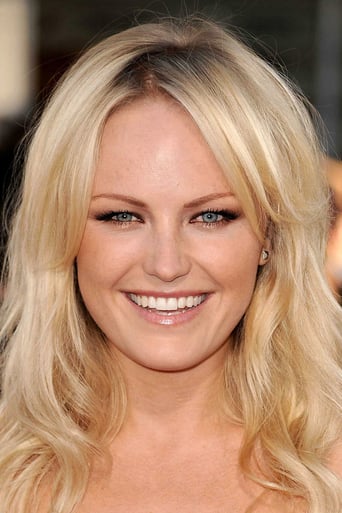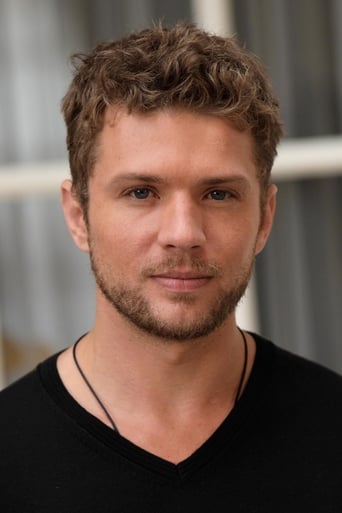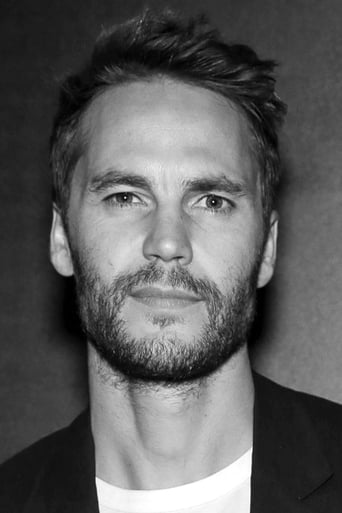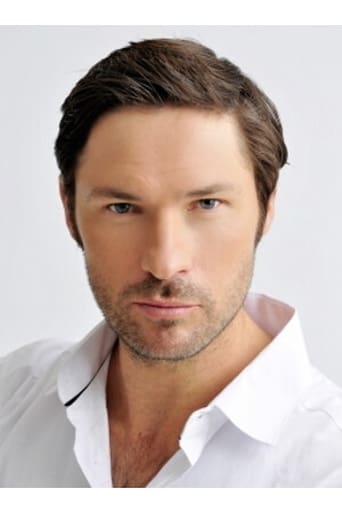IslandGuru
Who payed the critics
Solidrariol
Am I Missing Something?
Sabah Hensley
This is a dark and sometimes deeply uncomfortable drama
Cassandra
Story: It's very simple but honestly that is fine.
siderite
I avoided this film for a long time because it was set in South Africa and I thought it was going to be political. Instead it is more about the combat photographers that live and work in these zones, witnesses to all kinds of nasty things, but tasked with observing and taking pictures only.The film has a good cast, but considering it is based on a book written by two of the photographers - one played by Ryan Phillippe, it is strange that the most visible character is Taylor Kitsch's, who steals the show with his acting.The direction and writing of the film were a little bland, though, less ambitious than the subject of the movie. I wonder if it was intentional, as to show more of the perspective of the original book. Even so, we start with these musketeers of the camera, but we never understand why they got to doing what they're doing and so most of the time we couldn't care less what happens to them.The change comes at the end, when two of the group die and we are faced with the pain of their friends and loved ones, but it comes too late and on the background of Black people finding their children murdered and having to let photographers in to take account. It felt artificial and condescending, so that is why I rated this film merely average. Otherwise, an interesting story and word watching.One thing intrigued me: from the few IMDb comments for this film, there is none from South Africa, so they must have done something wrong with the movie.
rparham
The "Bang-Bang Club" was a moniker given to a group of primarily four South African photographers who gained notoriety for consistently putting themselves in harm's way to obtain photographs of the "silent war" between the African National Congress (ANC) and the Inkatha that raged from 1990 to 1994, leading up to the first free elections in South Africa that resulted in Nelson Mandela becoming President. The Bang Bang Club is a film version of those years, focusing on the primary members of this group, Greg Marinovich, Kevin Carter, Ken Oosterbroek and Joao Silva. Unfortunately, after watching The Bang Bang Club, the viewer will walk away from the film with a small degree of empathy for some of the people caught in the conflict, but mostly boredom and apathy towards the photographers as The Bang Bang Club fails to tell a compelling and involving story.As the film opens, we are introduced to Greg (Ryan Phillippe), a freelance photographer who shows up at a skirmish between the ANC and Inkatha where Kevin (Taylor Kitsch), Ken (Frank Rautenbach) and Joao (Neels Van Jaarsveld) are already in the midst of the action. Greg enters a nearby village, considered a foolhardy move by the other photographers, and manages to get some good photos and talks with the Inkatha warriors. Visiting the local newspaper, The Star, Greg impresses the others with this feat of daring and also manages to catch the eye of the photo editor of the paper, Robin (Malin Akerman). Greg starts joining the others as they go out each day, hoping to find action to photograph, constantly embroiling themselves in harrowing circumstances, surrounded by gunfire and potential bodily harm as the two warring sides face off. In the evenings, the members of the "Bang- Bang Club" drown their adrenaline in drink and engage in trysts with women. However, as the conflict carries on over the years, the members of the Club are finding themselves becoming more detached and desensitized to the ongoing stream of violence and this also leads to breakdowns in their relationships with others who aren't there to witness the acts that they face daily.The Bang Bang Club deals in some heady material: the waning days of apartheid in South Africa, and how one side, the Inkatha, had a different, more complicated point of view of the situation in the country than the simple argument of wrong vs right. When The Bang Bang Club addresses these issues, it manages to provide some stimulating moments. However, the problem is that, for the most part, The Bang Bang Club doesn't direct its attention on those aspects of the story. Instead, it largely focuses on the photographers who make up the Bang Bang Club and that proves to be very shallow, conventional material too often. There is the potential of a terrific movie in the story of these men jumping into the fight to documenting it, but what is on display here falls short of delivering a powerful story.The Bang Bang Club puts Marinovich and Carter at the forefront of the narrative, with Oosterbroek and Silva largely in the background as supporting characters, but the film fails to make any of these men tremendously interesting. We see them dodging bullets on the battlefield, but there isn't any significant depth to them. They shoot photos, they drink, they sleep with women, and for much of the running time, that is about it. The only romantic relationship that gets any significant screen time is the one between Marinovich and Robin, but it is lacking in any interest or passion. There is no chemistry between the two, they get together because the screenplay wants them to, not because we feel any attraction between the two. An element of the plot that is given some exploration is the idea that these men are losing their humanity to the constant chase of the next great shot, and in one scene, in which Marinovich is called to a man's home after his wife and son have been killed by police officials to document the events does give a strong emotional undercurrent to how Marinovich has put aside his involvement in the events around him to make sure the photos are good. However, another scene in which Carter is confronted by journalists after a photo he took of a vulture stalking a small child outside a feeding station wins a Pulitzer Prize comes across as forced and obvious. Carter tries to answer questions about why he only took the photo and not help the child, and it is a considerable issue to confront, but it is handled in such a manipulative way that the scene loses its power.Phillipe and Kitsch, in the roles of Marinovich and Carter, are both OK in their parts, but neither are delivering stellar work. Of the two, Kitsch receives a juicier role as Carter, who is the more psychologically unstable of them, and at times manages to tap into some of the mental anguish that Carter experiences, but still, he proves a limited character. Phillipe does a good job of showing us how detached Marinovich is from the basic human emotions being stirred by those around him as he focuses on getting the right framing or lighting, but Marinovich is still often a blank slate. Akerman gets the thankless role of love interest, as the film doesn't give her much depth beyond that. She's easy on the eyes, but there isn't a lot for her to do.The Bang Bang Club was directed by Steven Silver, who has a background in documentary filmmaking, and it shows at times. Many of the scenes are filmed in a hand-held "you are there" style which can make the audience feel it is part of the proceedings, but style isn't really The Bang Bang Club's problems. It's inability to make these men's situation involving and to not give the greater conflict its due at times is ultimately The Bang Bang Club's undoing.
A A
I watched this movie by chance because it was on the TV so I didn't have high expectations. I've never read the book and I hadn't heard of the Bang Bang Club so this was all new to me. A very interesting movie which leaves you wondering. Are those photographers brave men who show the public what it needs to see? Or are they adrenaline driven mavericks who do nothing when they see horrible crimes overwhelmed by the possibility of a good shot?I'm not a big fan of Ryan Phillippe and this movie didn't change my opinion. Somehow I found his character lifeless which is odd because he seems to be the main character in this movie. The love story is unnecessary and gave the impression that the filmmakers desperately were looking for a reason to have woman in the main cast. However the rest of the cast is brilliant especially Taylor Kitsch who I hope will have a big career in the years to come.This is a fine movie and I highly recommend it. However be informed that it is not a feel-good movie and sometimes hard to take because of the amount of violence and tragedy.
JaeBianca
This is super-duper spoilery, but it's "based on real events," so suck it if you didn't want to know!-- Groupie: I know you! -- Carter: That's funny...my own mother doesn't know me. -- Groupie: You're one of those photographers, who takes the pictures.-- Robin: Maybe you have to be like that to do what you do.Those little exchanges pretty much sum up the movie--it's about rock star photographers and the rocket scientists who sex them up. It's well meaning, but feels very hollow. There are some disturbing scenes which feel so staged, that it's like the offenders are performing Kabuki theater for the photographers rather than committing actual atrocities. In one scene, there are two groups fighting in the streets with a good 100 feet between them, with the four photogs positioned to get comfortable shots of both sides. When snipers begin attacking, few people run, no one acknowledges the fallen, it's not even apparent which side is shooting which.Once they've been christened "The Bang Bang Club" (after rejecting "The Bang Bang Paparazzi"), a Colored guy (yes, still a racial descriptor in SA) asks to join the group, to which Greg reluctantly says yes, lest they be deemed "The White Boy Club." Of course, he is shot and killed within minutes. THIS, of course, pushes Greg over the edge. Greg...the guy who fairly calmly photographed a Black man get stabbed four times with machetes BEFORE suggesting the attackers stop, then continued to photograph the man as he was set aflame and running around until he was finally stabbed to death. Fortunately, throughout these ordeals Greg's editor is willing to ease his pain with her naked body.When two members of the BBC are inevitably shot during one harrowing standoff between the military and some snipers, the immediate and dramatic response of those around them was in stark contrast to their reaction to the felling of just about everyone else, ever. They are swiftly dragged out and taken to the hospital. And of course, the one who dies is also the one given the least attention, although his model girlfriend is given lots of crying scenes afterward.Taylor Kitsch's performance has been given a lot of attention, both because of his commendable transformation into a crazy South African and because of his character's real-life tragic ending. That said, I got a better sense of his drug addiction and how he was affected by his Pulitzer-winning photo from the Time Magazine article on his death than from this movie. They paid enough attention to Carter inviting a nameless groupie/teacher to a party, that I have to assume she's the mother of the child he mentions in his suicide note. Who knows, because this guy just popped in and out of the story like a bipolar ghost.





